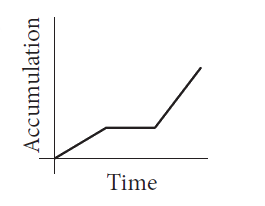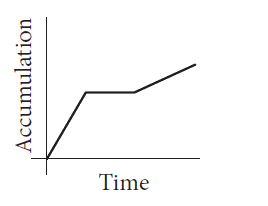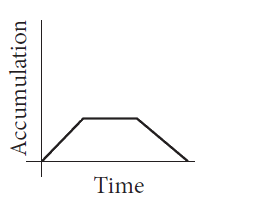During thaw (melting of snow ) the atmosphere gets:
warm
cold
very hot
very cold
Step-by-Step Solution:
1. Understanding Thawing:
- Thawing refers to the process of melting, particularly of ice or snow. When ice or snow melts, it transitions from a solid state to a liquid state.
2. Heat Absorption:
- During the melting process, ice absorbs heat from its surroundings. This is an important concept in thermodynamics where a substance changes state (from solid to liquid) by absorbing heat.
3. Effect on Surrounding Temperature:
- As the ice absorbs heat, it takes energy from the surrounding atmosphere. This process results in a decrease in temperature in the surrounding air.
4. Conclusion:
- Therefore, during the thaw (melting of snow), the atmosphere gets colder due to the heat being absorbed by the melting ice.
5. Correct Answer:
- The correct answer to the question is that during thaw, the atmosphere gets cold.
---
- Thawing refers to the process of melting, particularly of ice or snow. When ice or snow melts, it transitions from a solid state to a liquid state.
- During the melting process, ice absorbs heat from its surroundings. This is an important concept in thermodynamics where a substance changes state (from solid to liquid) by absorbing heat.
- As the ice absorbs heat, it takes energy from the surrounding atmosphere. This process results in a decrease in temperature in the surrounding air.
- Therefore, during the thaw (melting of snow), the atmosphere gets colder due to the heat being absorbed by the melting ice.
- The correct answer to the question is that during thaw, the atmosphere gets cold.
Topper's Solved these Questions
- MATTER BOOK - ICSECHAPTER - MATTER EXERCISE - THEME ASSIGNMENT
25 Videos
- MATTER BOOK - ICSECHAPTER - MATTER EXERCISE - THEME ASSIGNMENT
25 Videos
- LIGHT ENERGYBOOK - ICSECHAPTER - LIGHT ENERGYEXERCISE - THEME ASSIGNMENT D. Statements given below are incorrect. Write the correct statements.
7 Videos
- MODEL TEST PAPERS BOOK - ICSECHAPTER - MODEL TEST PAPERS EXERCISE - Model Test Paper 2 (Section II)
42 Videos
Similar Questions
Knowledge Check
Snow fell and then stopped for a time. When the snow began to fall again, it fell at a faster rate than it had initially. Assuming that none of the snow melted during the time indicated, which of the following graphs could model the total accumulation of snow versus time?
A B
B C
C D
D
During the melting of a slab of ice at 273K at atmospheric pressure,
View SolutionDuring the melting of a slab of ice at 273K at atmospheric pressure,
View SolutionWhat are the forms of energy into which the electrical energy of the atmosphere is dissipated during a lighting?
View SolutionName the important parts involved in creating a pressure gradient between lungs and the atmosphere during normal respiration.
View SolutionA: The internal energy of a solid substance increases during melting.
R: Latent heat is required to melt a solid substance.
View SolutionAssertion: When ice melts, work is done by atmosphere on (ice+water) system.
Reason: On melting of ice volume of (ice+water) system decreases.
View SolutionAn open container is placed in atmosphere. During a time interval, temperature of atmosphere increase and then decreases. The internal energy of gas in container
View Solution
